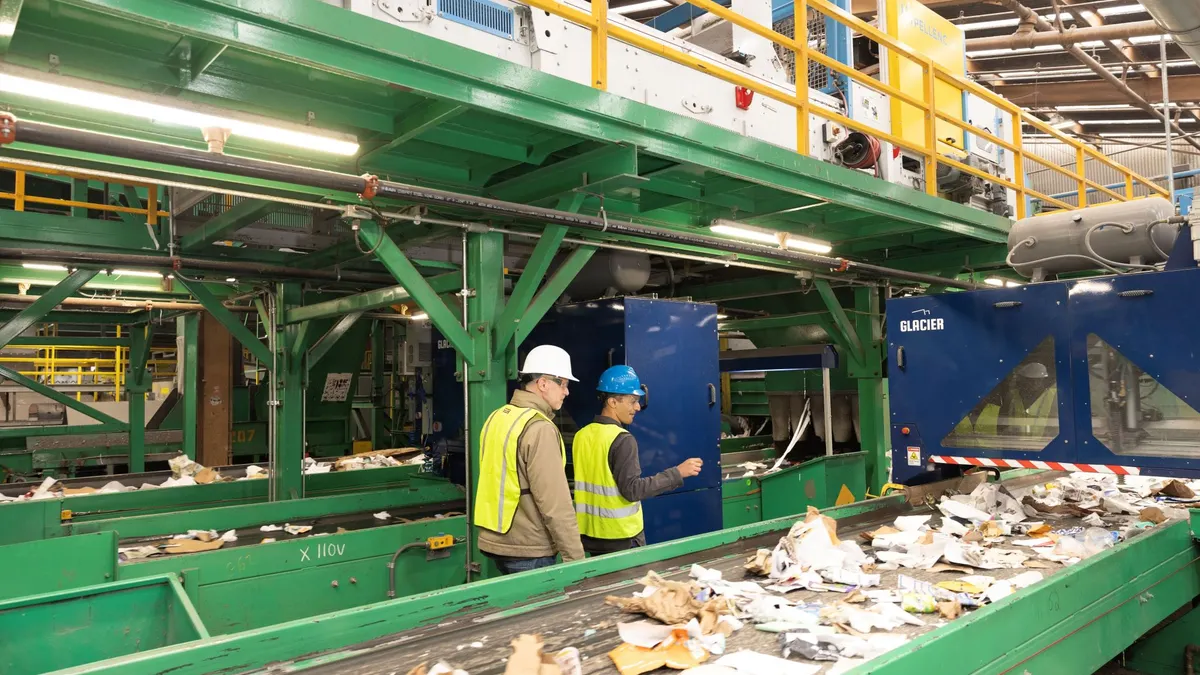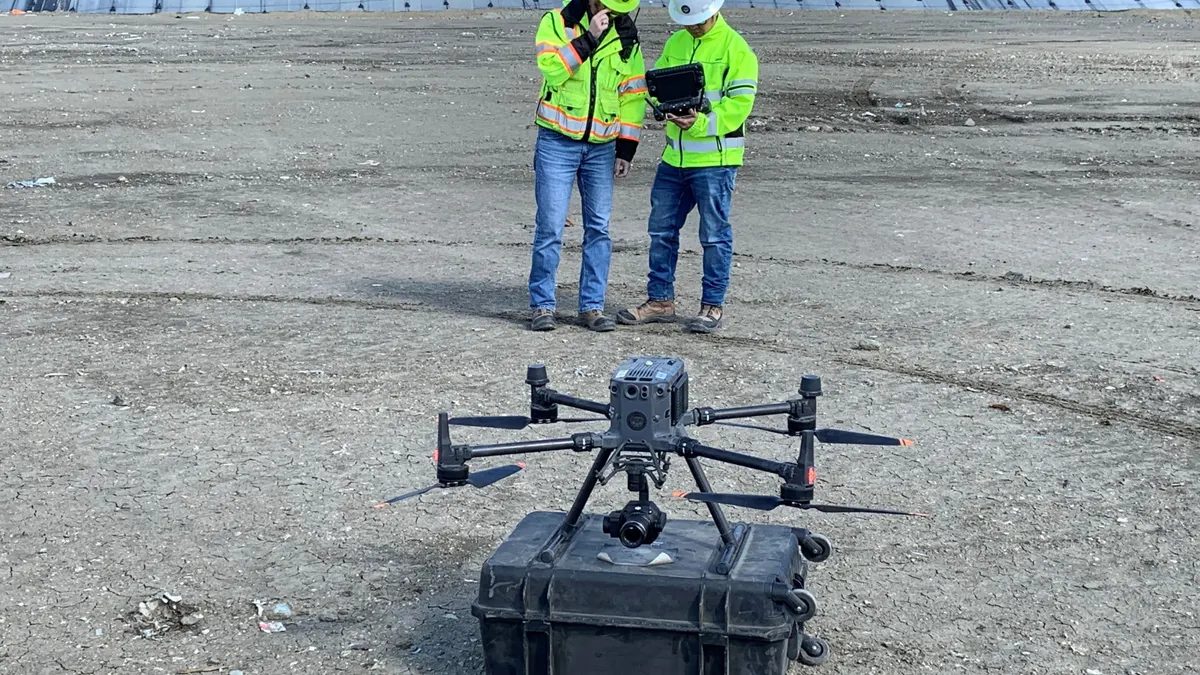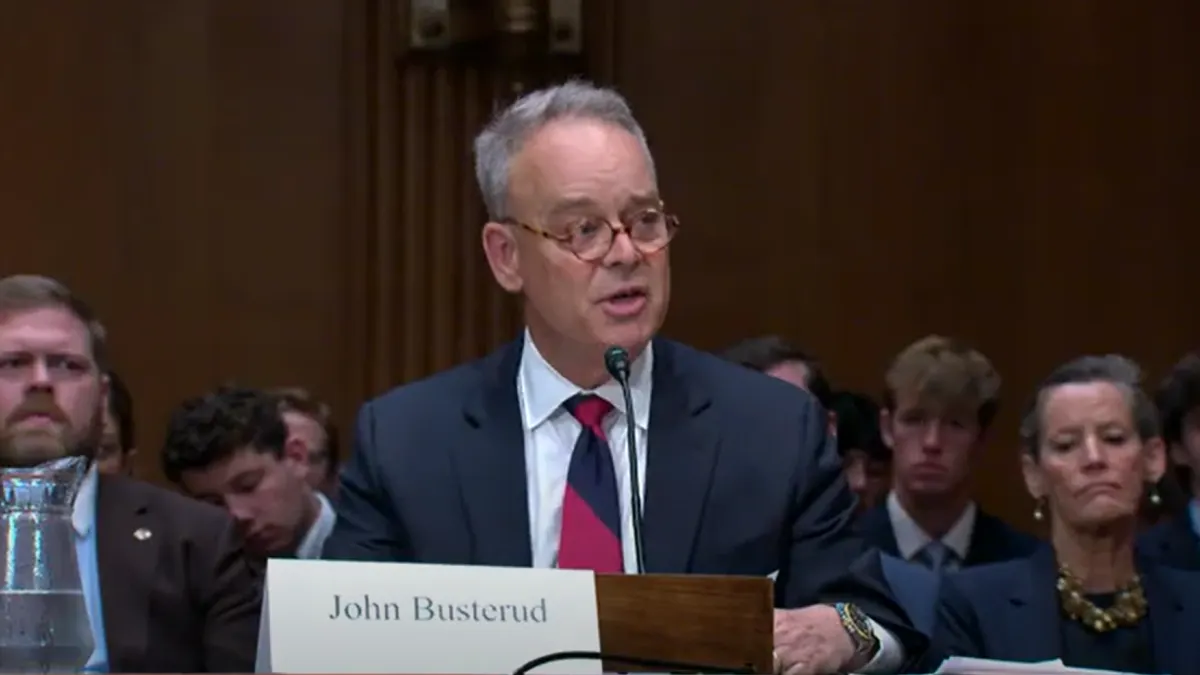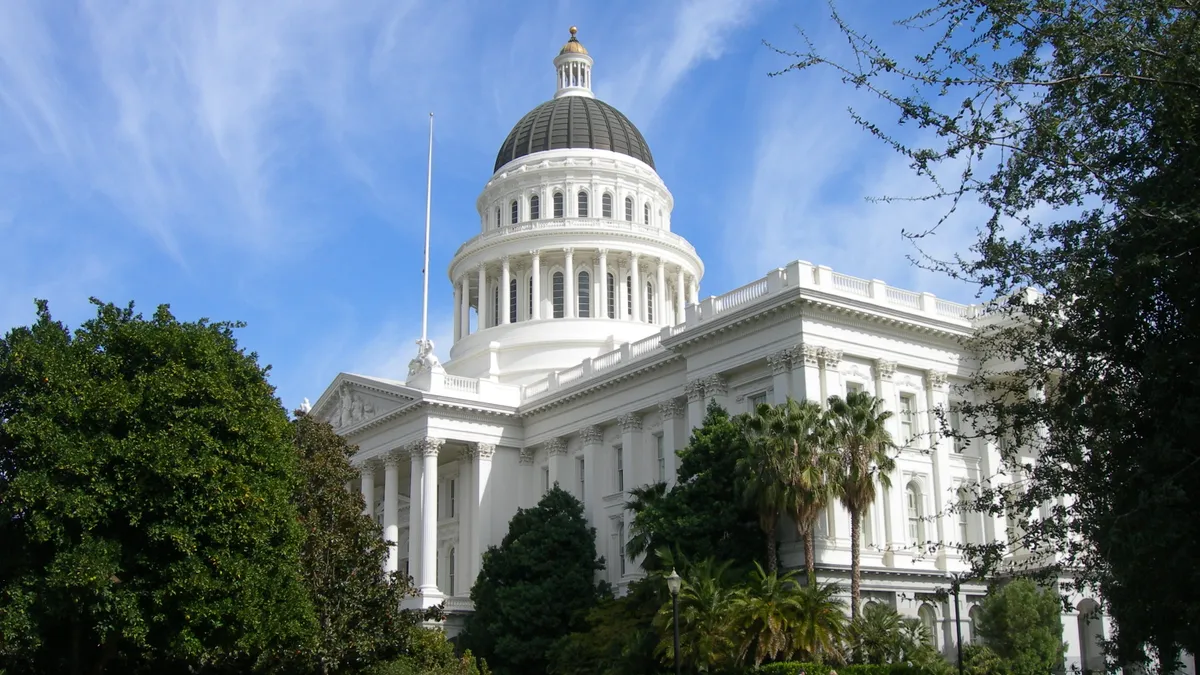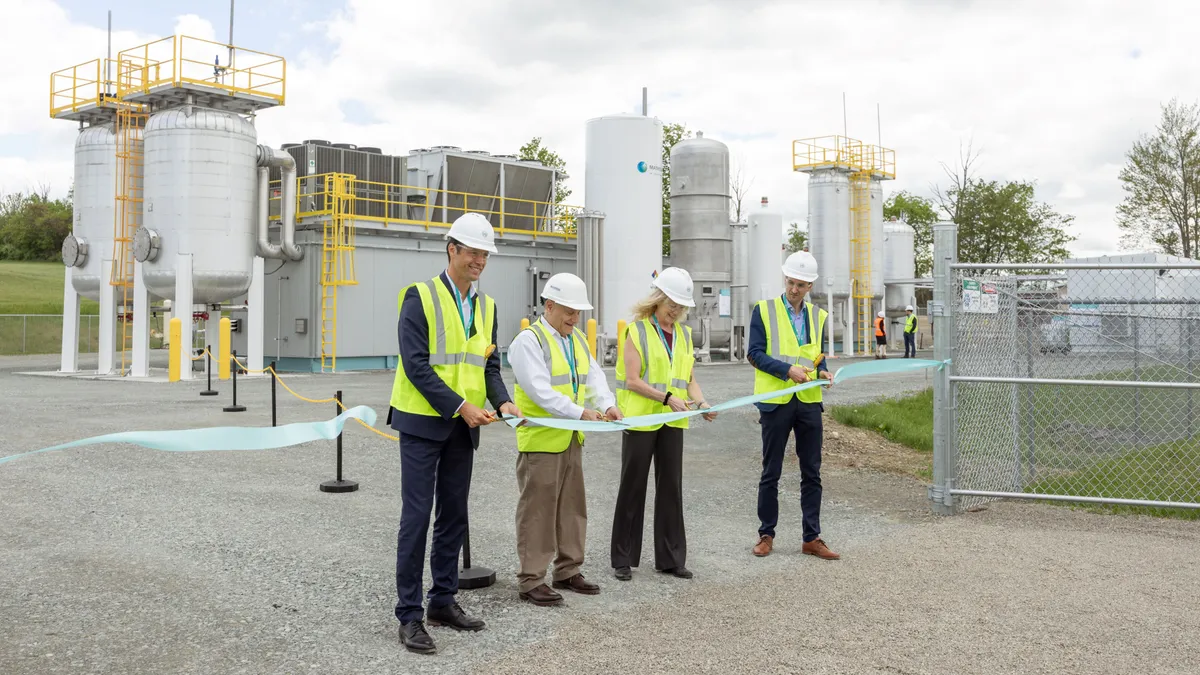Welcome to Scrap Collector, Waste Dive's Friday round-up of insights and stories you may have missed during the week.
VERMONT CRACKS DOWN ON SINGLE-USE PLASTICS
Heads up, plastic watchers: Vermont legislators have passed what is being credited as the nation's "toughest bill yet" with regard to single-use plastics regulation. S.113, which was sent to Gov. Phil Scott on Wednesday, would ban the distribution of single-use plastic bags, plastic drink stirrers and expanded polystyrene food service products. The bill would also make plastic straws available only upon request.
"Simply put, Vermont is leading the nation in dealing with the toxic blight of single-use plastics," Jen Duggan, vice president and director of Conservation Law Foundation (CLF) Vermonth, told Waste Dive via email. "The most important part of this bill is that it tackles four plastics together — bags, straws, stirrers and toxic polystyrene foam. The bill bans all plastic bags that do not have stitched handles, which is a critical detail. This ensures that truly reusable bags will be used, instead of stores just switching to thicker plastic."
"This bill is certainly a model for other states to follow," she added.
S.113 is the latest in a slew of similar bills approved this legislative session, including Maine's statewide ban on polystyrene foam containers, New York's plastic bag ban and Hawaii's sweeping single-use plastics ban. Oregon, Massachusetts and Maryland are also considering their own respective statewide bans on plastic products.
Plastics trade groups, however, question the efficacy of such bans.
"The Vermont legislation is a signal that materials and products that are harder to recycle are facing more scrutiny, but we continue to believe that bans are not long-term solutions," Shannon Crawford, director of state government affairs for the Plastics Industry Association, told Waste Dive in an email. "More can be accomplished through a commitment to modernize and expand recovery and recycling infrastructure."
The American Chemistry Council's Plastic Foodservice Packaging Group also expressed its strong opposition of S.113 to Waste Dive, asserting that a ban on polystyrene foam foodservice containers "could lead to increased solid waste, energy use, water use, and greenhouse gas emissions."
These arguments, however, could prove moot in the face of the bill's popular appeal.
"We're finding tremendous public support for the campaign all across Vermont," Paul Burns, executive director of Vermont PIRG, told Waste Dive via email. "People are sick and tired of plastic pollution. They know the problem is getting worse by the day and they want to see real action."
According to Burns, Gov. Scott has indicated he will "likely" sign the bill — so long as retailers don't oppose it.
"We're taking nothing for granted and encouraging him to sign it," Burns said. "Even if he decides to veto, we could potentially override the veto."
IN OTHER NEWS...
Wheelabrator formally withdraws Catskill ash dump proposal — Daily Freeman
The town of Catskill, New York received formal confirmation on Wednesday of Wheelabrator's intent to drop its proposed regional ash monofill and recycling center at the former Peckham Materials quarry.
"While we stand by the conclusions of our technical evaluation to date that the site was capable of meeting and exceeding state environmental requirements, we no longer wish to engage in this project at this time," Wheelabrator President and CEO Robert Boucher wrote in a May 22 letter to town supervisor Doreen Davis. The project, according to the letter, would have created "significant and demonstrable environmental, financial and economic benefits to the residents of the town and village," including:
-
As much as $1 million annually in direct payments to the town and a "significant" revenue stream for the village from treatment of contact water,
-
As many as 15 full-time jobs,
-
Elimination of 4,500 tons of greenhouse gas emissions annually through a reduction of truck trips to more distant landfills,
-
A 90% reduction in waste volume, and
-
Incineration-generated energy.
The news will come as a relief to local environmentalists, many of whom raised concerns over the 450,000 tons of ash that would have been transported to the site from Wheelabrator-owned incinerators in Poughkeepsie, Peekskill and Hudson Falls.
"I don't think that would be the type of activity we need near the Hudson or anywhere that would be impacted by contamination in an environmentally sensitive area,” Saugerties Councilman Paul Andreassen said last week of the plan. "I'm sure there are other places they could find to locate that. We don't need that kind of degradation. The river's already been through enough."
AROUND THE WORLD
Coca-Cola most common source of UK beach plastic pollution, report reveals — The Guardian
According to a new study commissioned by Surfers Against Sewage (SAS), Coca-Cola and its attached brands are responsible for 15.5% of the identifiably branded items found on UK beaches, followed by PepsiCo (10.3%), Mondelez International (6.78%), McDonalds (5.97%) and Nestlé (5.48%).
The data was gathered from a series of April 2019 beach cleanups conducted by more than 45,000 SAS volunteers, who recorded nearly 50,000 total pieces of litter. Of the 20,000 branded items recorded, 92% could be attributed to the 50 parent companies whose items were most frequently found. Ten parent companies alone were responsible for more than 60% of the total number of branded items, while Coca-Cola and PepsiCo were jointly responsible for more than a quarter of the items.
The results, which have been submitted to the UK government, may be used as evidence of the need for strengthened extended producer responsibility (EPR) guidelines. Per the study, all of the companies whose packaging is most frequently found on beaches are obligated under current regulations (an annual packaging threshold of over 50 metric tons and an annual turnover of over £2 million) — illustrating the slippery nature of enforcing brand responsibility.
"Producers must offer full transparency and disclosure on the amount and type of packaging they use," said Hugo Tagholm, chief executive of SAS. "Our environment is in peril and plastic pollution is a clear indicator that business as usual just won't do. This is not a littering issue — business needs to provide radical and responsible new systems that drastically reduce their impact on our oceans, forests and nature at large."
SEEN & HEARD
Pollution is funny. If it’s visible, it gets attention. But if it’s not, we don’t seem to understand it.
— Dr. Jonathan Foley (@GlobalEcoGuy) May 21, 2019
For example, the amount of fertilizer used in the world is roughly the same mass as the total amount of plastic produced annually. But do we hear about fertilizers?
Celebrity campaign in HK to reduce single use plastics & #plasticpollution https://t.co/LqhP7PKa0t via @YouTube
— Waste Counter (@WasteCounter) May 20, 2019
Yesterday, LASAN ♻️ Director -@zaldivarec met with a delegation from #Guanajuato #Mexico to discuss #recycling opportunities.@lacitysan consistently works with various delegations from around the world in order to accomplish any synergies among them.
— LA Sanitation & Environment (@LACitySAN) May 22, 2019
???? https://t.co/le3wAuXeyl pic.twitter.com/qgzBMuVpHH
Sam is v smart he invented democracy AND polyethylene terephthalate. #GameOfThrones pic.twitter.com/sKvCHCAwKW
— Anthony Oliveira (@meakoopa) May 20, 2019







